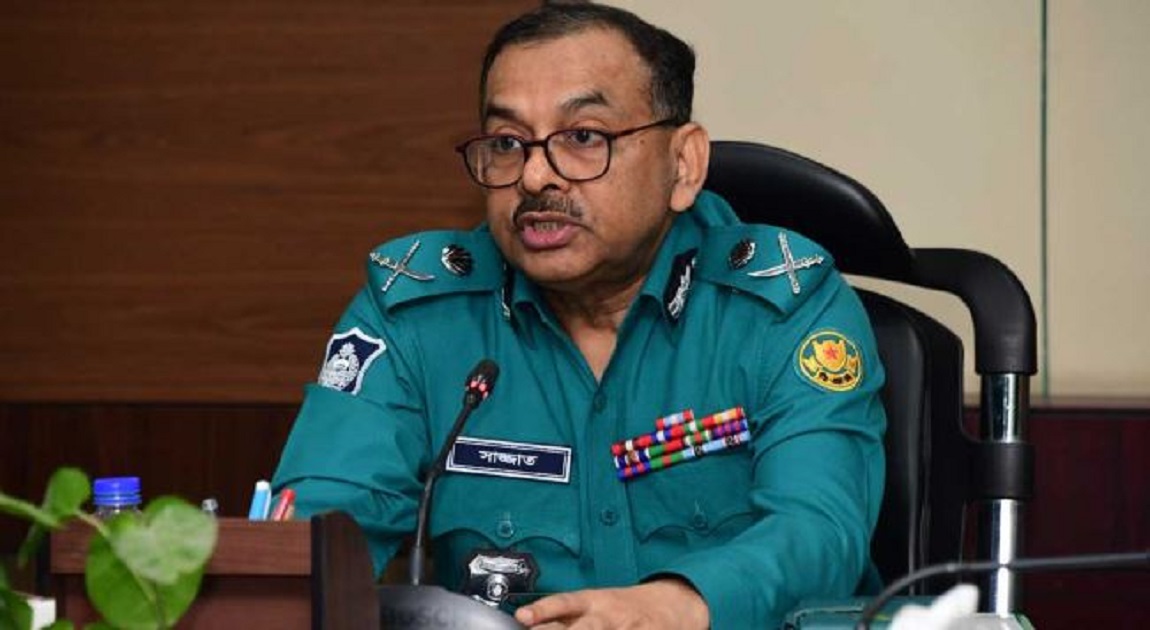As Bangladesh marks the ninth anniversary of the deadly Holey Artisan Bakery attack, Dhaka Metropolitan Police (DMP) Commissioner Sheikh Md. Sajjat Ali has sparked controversy by downplaying the threat of militancy in the country.
When asked about current counterterrorism efforts, he stated, “There are no militants in Bangladesh. What we have are muggers.”
The statement comes despite the 2016 attack being one of the most violent acts of terrorism in Bangladesh’s history, which drew global attention.
On the night of July 1, 2016, five young assailants stormed the upscale bakery in Dhaka’s diplomatic zone, killing 20 hostages — including 17 foreign nationals — as well as two police officers who attempted to intervene. The attackers used firearms and machetes to carry out the massacre.
While the international terrorist group Islamic State (IS) claimed responsibility for the attack, Bangladeshi authorities rejected the claim, asserting that the attackers were part of a homegrown militant network identified as Neo-Jama`atul Mujahideen Bangladesh (Neo-JMB).
Despite this, the current DMP Commissioner suggested that concerns over terrorism may have been exaggerated during the previous administration.
“During the Awami League government, they staged jihadist dramas to kill young people,” he said, implying that counterterror operations were used to justify extrajudicial actions. When asked directly whether the Holey Artisan attack itself had been staged, he responded, “I don’t know about that. But there are no militants in Bangladesh. People steal because of poverty.”
This marks a stark contrast to statements made on previous anniversaries. Just last year, the then-head of the Counter Terrorism and Transnational Crime (CTTC) unit had warned that, while major operations had subdued militant activity, the ideological seeds of extremism still remained in the country.
Notably, commemorative practices traditionally held on July 1 — such as floral tributes at the “Deepto Shopoth” monument honoring the fallen police officers — were absent this year. Authorities cited the absence of formal programs by foreign embassies as well.
In recent political turmoil following a change in government, the Gulsan police monument itself was reportedly vandalized, with banned Islamist group Hizb-ut Tahrir’s posters placed at the site. No official statement was made at the time regarding who was responsible.
The 2016 attack had prompted a major overhaul of Bangladesh’s counterterrorism strategy. Special units like the CTTC, the Anti-Terrorism Unit, and specialized RAB wings were formed to address extremist threats. However, the current commissioner said that CTTC has now been instructed to focus on street crime. “They’ve been told there are no militants to catch. Go catch the muggers — those are our militants now,” he remarked.
The comments come amid wider scrutiny of the previous government’s use of anti-terror operations. A recently formed inquiry commission investigating enforced disappearances stated that past administrations had used the threat of militancy to justify systemic abductions, often targeting political opponents.
Still, the threat of terrorism remains real, the commission`s chairman, retired Justice Moinul Islam, noted in a press conference last month. He cited the Holey Artisan attack as proof that the danger of extremism cannot be dismissed. “However, in combating terrorism, the state must be honest, committed to human rights, and adhere to legal procedures,” he said. “When counterterror efforts become tools for political suppression, they undermine the rule of law and public trust.”
The remarks by the DMP Commissioner reflect a shifting narrative within the state machinery about the nature and severity of militant threats in post-transition Bangladesh — raising questions about how the country defines and addresses extremism today.















-20260221022942.jpg)
-20260221022827.webp)
















